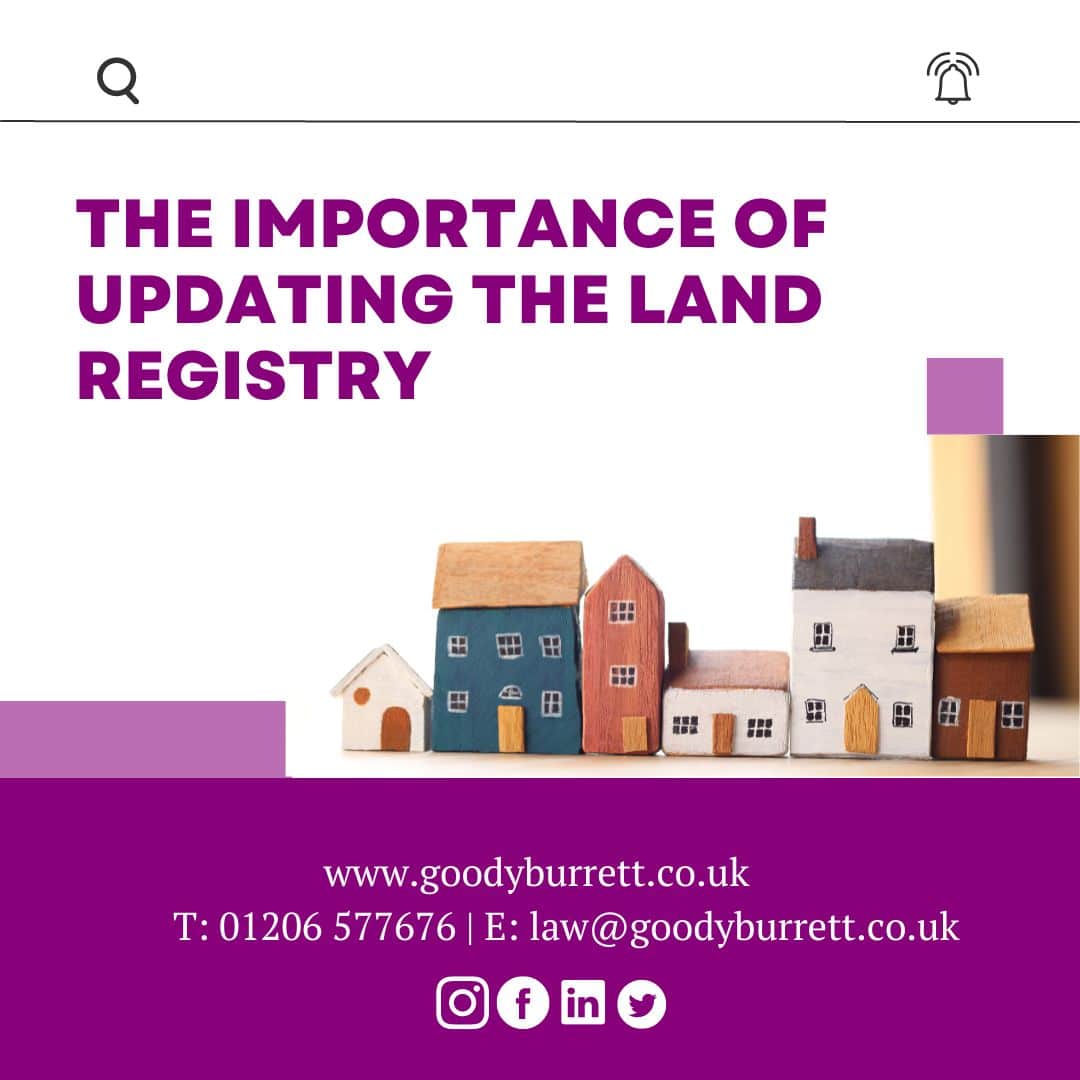
The importance of updating the Land Registry
As a property owner, it is important that the Land Registry is kept up to date with your details and contact information. This helps to prevent fraud and simplifies future conveyancing. There are several key times when the Land Registry should be told that your information has changed.
Firstly, the Land Registry should be told if you change your name. This is often forgotten and only becomes an issue when attempting to sell or remortgage your property. The Land Registry will need to know that you are who you say you are, and this can be more difficult to prove if your name is incorrect on the Register. This can lead to unnecessary delays at a particularly stressful time, whilst you find the necessary paperwork to prove you changed your name.
Though less common, it is also important to let the Land Registry know if your residential address changes. If the Land Registry needs to contact you, they will write to you at the address they have been provided with. If you rent the property out or the property is vacant it is important that the Land Registry has the address of the property you live in. If someone makes an application to the Land Registry which affects your property, the Land Registry may write to you to give you an opportunity to object to the application. If your address is not up to date, you may not realise that they are trying to contact you. This makes you more vulnerable to fraud.
Another time when the Land Registry should be contacted is when the owner of the property dies. If a solicitor is appointed to deal with the estate this will usually be dealt with by the solicitor, but if the estate is being dealt with by individuals the Land Registry can easily be missed. This can then become an issue when the property is sold, as the Land Registry will require evidence that the person selling the property has a right to do so. This can lead to delays whilst the documents are found and potentially, whilst probate is obtained if it has not been applied for previously.
If you need to update the Land Registry, please do give our office a call on 01206 577676. Alternatively, you can do so directly but a Solicitor will have more experience in dealing with the Land Registry and will be more familiar with their requirements and processes. In addition, Solicitors do not usually need to send original documents to the Land Registry which lowers the risk of important documents being lost.
For more information
Contact us on 01206 577676 or you can email [email protected]





